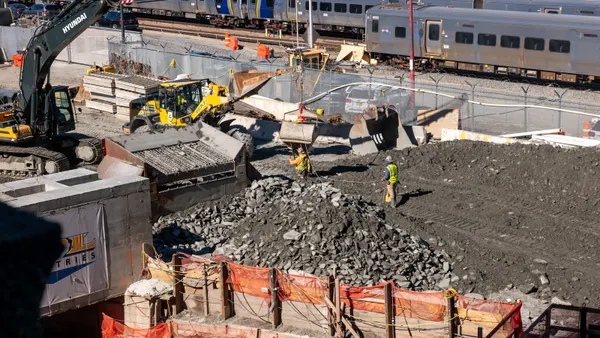Dive Brief:
- Phoenix’s City Council unanimously passed a heat safety ordinance Tuesday in order to better protect outdoor workers in the city from the sweltering Arizona heat.
- In response to elevated temperatures and increased heat-related illnesses and death, the city will adopt an ordinance effective 30 days from Tuesday requiring employers with outdoor workers to have a heat safety plan on record.
- “Extreme heat is Phoenix’s natural disaster,” District 7 Councilwoman Yassamin Ansari said at the meeting. Over 600 Maricopa County citizens died from extreme heat in 2023 — nearly 400 in Phoenix alone — and prolonged high temperatures due to climate change will likely persist, Ansari noted.
Dive Insight:
The heat safety plans mandated by the ordinance apply to all contracts, leases and licenses with the city, including subcontracts. The plans must include:
- Availability of free cool drinking water.
- Ability to take regular and necessary breaks (including water breaks).
- Access to shade and/or air conditioning.
- Access to air conditioning in vehicles with enclosed cabs.
- Acclimatization practices.
- Training on heat illness and injury.
Union representatives and worker advocates testified at the meeting, urging the council to pass the ordinance, saying many people have had to work prolonged hours outside without access to water or shade.
David Hondula, director of Phoenix’s Office of Heat Response and Mitigation, explained to the council the reasoning behind the ordinance, and said it could benefit employers.
“It also makes good business sense for us to have and implement a heat response plan,” Hondula told the city council prior to the vote. “For one, research shows us that workers who are not dealing with, recovering from or worried about heat-related illness are more productive on the job.”
The Arizona chapter of the Associated General Contractors of America opposed the ordinance in a March 7 letter to the city, calling it “redundant and unnecessary,” and urging the council to vote against it.
In the letter, the AZAGC said the Arizona Division of Occupational Safety and Health already covered heat safety in its statewide emphasis program, and said the descriptions of access to air conditioning for cabbed vehicles were “very vague” and in need of clarification.
Finally, the organization pointed to a lack of appeals process in the event an employer faces debarment due to the ordinance.
Nationwide heat safety
OSHA has plans to develop a heat safety standard, but the process is long, and the agency has not announced a timeline for implementation. For the time being, heat safety falls under the agency’s general duty clause, which declares employers have a basic requirement to protect workers from easily identifiable hazards and maintain a safe workplace.
Like Phoenix, Miami has an appointed heat safety officer to help plan and execute safety for the general public during extreme weather. Unlike Phoenix, though, Florida could soon hamstring local mandates designed to address heat-related worker safety.
The state legislature passed a bill banning local municipalities from implementing their own ordinances, purportedly to reduce varied requirements for employers that work across the state.
“I empathize with that [argument], but these requirements are very basic. They’re not strenuous, they’re not overly burdensome,” State Rep. Anna Eskamani, a Democrat who opposed the Florida bill, told Construction Dive at the time. She added that companies operating across multiple counties and cities have the resources to track the varied rules.
The Florida bill would go into effect July 1, should Gov. Ron DeSantis sign it.















